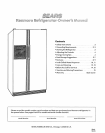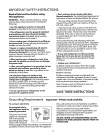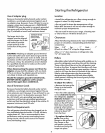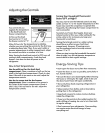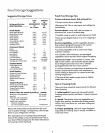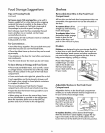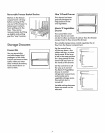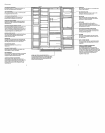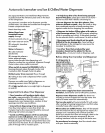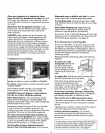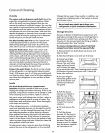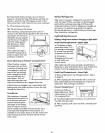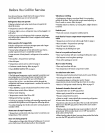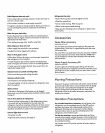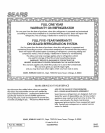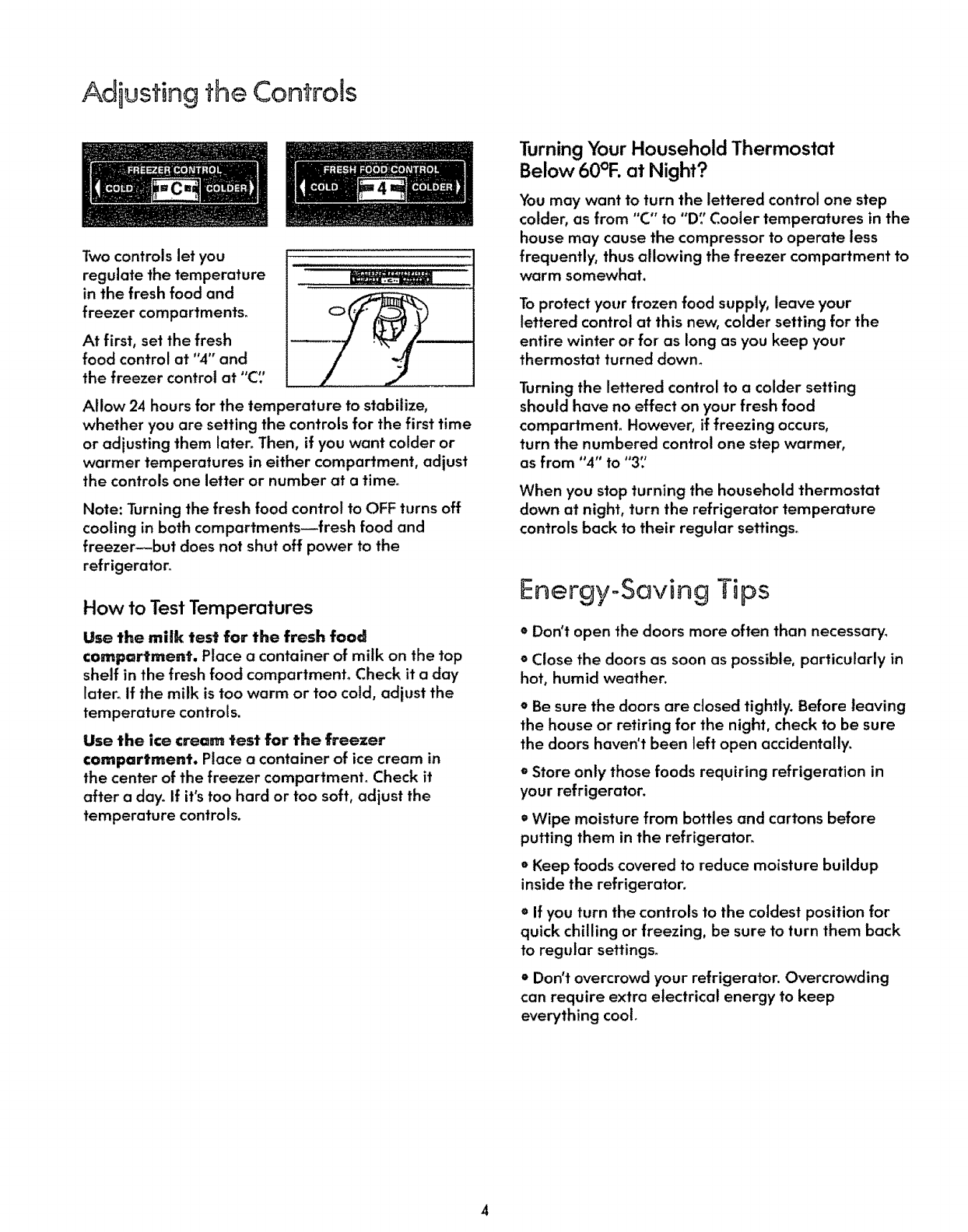
Adnusting the Controgs
Two controls let you
regulate the temperature
in the fresh food and
freezer compartments.
At first, set the fresh
food control at "4" and
the freezer control at "C'/
Allow 24 hours for the temperature to stabilize,
whether you are setting the controls for the first time
or adjusting them later° Then, if you want colder or
warmer temperatures in either compartment, adjust
the controls one letter or number at a time°
Note: Turning the fresh food control to OFF turns off
cooling in both compartments--fresh food and
freezer--but does not shut off power to the
refrigerator.
How to Test Temperatures
Use the milk test for the fresh food
compartment, Place a container of milk on the top
shelf in the fresh food compartment° Check it a day
later° if the milk is too warm or too cold, adjust the
temperature controls.
Use the ice cream test for the freezer
compartment. Place a container of ice cream in
the center of the freezer compartment° Check it
after a day_If it's too hard or too soft, adjust the
temperature controls.
Turning Your Household Thermostat
Below 60°F. at Night?
You may want to turn the lettered control one step
colder, as from "C" to "D" Cooler temperatures in the
house may cause the compressor to operate tess
frequently, thus allowing the freezer compartment to
warm somewhat.
To protect your frozen food supply, leave your
lettered control at this new, colder setting for the
entire winter or for as long as you keep your
thermostat turned dowm
Turning the lettered control to a colder setting
should have no effect on your fresh food
compartment° However, if freezing occurs,
turn the numbered control one step warmer,
as from "4" to "3"
When you stop turning the household thermostat
down at night, turn the refrigerator temperature
controls back to their regular settings_
Energy-Saving Tips
• Don't open the doors more often than necessary.
• Close the doors as soon as possible, particularly in
hot, humid weather.
o Be sure the doors are closed tightly. Before leaving
the house or retiring for the night, check to be sure
the doors haven't been left open accidentally.
o Store only those foods requiring refrigeration in
your refrigerator.
• Wipe moisture from bottles and cartons before
putting them in the refrigerator.
o Keep foods covered to reduce moisture buildup
inside the refrigerator.
e If you turn the controls to the coldest position for
quick chilling or freezing, be sure to turn them back
to regular settings_
o Don't overcrowd your refrigerator. Overcrowding
can require extra electrical energy to keep
everything cOOlo
4



